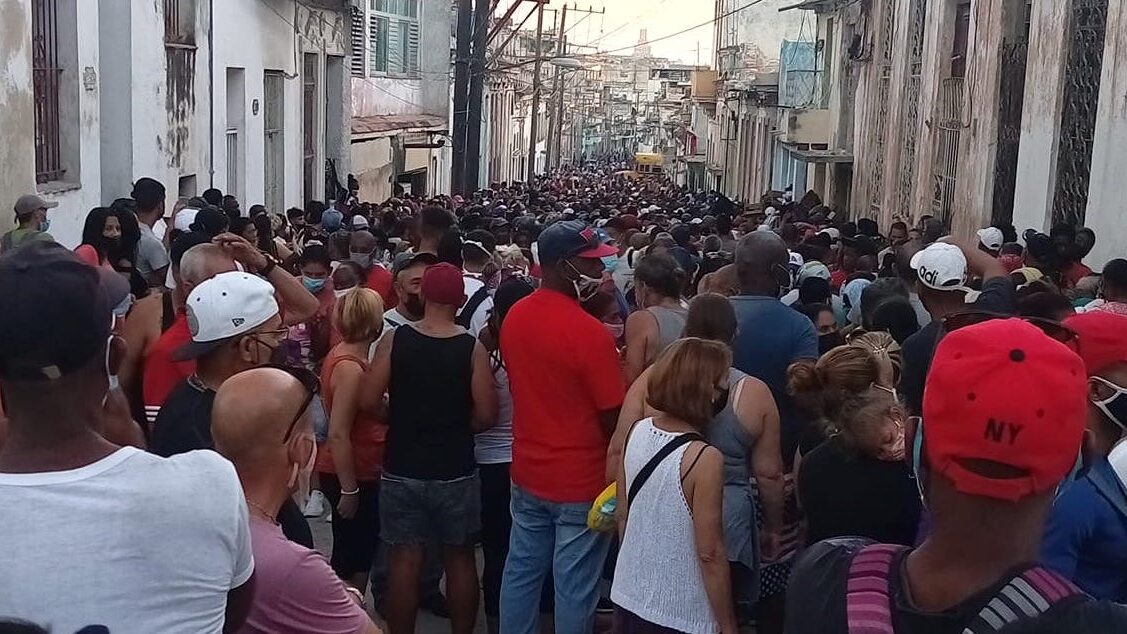
The communist Castro dictatorship’s knows when large groups of hungry and angry Cubans gather together in public, it takes little to spark a protest or riot. That is their biggest fear, especially after July 11, 2021.
Roberto Alvarez Quiñones reports in Diario de Cuba:
Castroism’s fear of ‘the masses’ prompts it to shorten lines in Havana
So many hungry and angry people in one place, cursing the exasperating lack of food, is a dangerous time bomb for any autocracy.
Dictator Raúl Castro and the millionaire mafia that keeps him in power were so alarmed by the political/social time bombs constituted by the the enormous lines in Havana to buy food that they decided to take action to shorten them.
This, and no other, is the purpose of the measure adopted by GAESA, whereby as of April 21, 2022 Havana residents can only buy in foreign currency stores located in the municipalities where they reside.
The regime decreed the “municipalization” of shopping at the stores of the Caribe chain and the CIMEX corporation to avert crowds of people at the stores in the populous capital. As the Roman poet Virgil said, “hunger is a poor advisor,” and so many hungry and angry people in the same place, complaining about the exasperating lack of food, is a very dangerous time bomb for any autocracy.
The most scandalous thing is that this involves the sale of food in dollars, and not even in the national currency in which salaries and pensions are paid to Cubans.
Big Brother-like technology to keep tabs on consumers
After managing to muster some dollars on the street, paying 110 pesos or more for each greenback, consumers are then forced to give their IDs to a store employee or to the police officer “guarding” the line when they arrive at the store. These are scanned, and one’s private personal data is recorded on a cell phone and sent to a database of the Ministry of the Interior (MININT).
With this Orwellian Big Brother technology, created at the University of Computer Sciences in Havana, the tyrant Castro II tramples on the Constitution that he himself rammed through in April 2019, which established the right of citizens to protection of their images and personal data.
Cubans can forget about any of that, as State Security records which store they go to, what each consumer buys, and even whether they complained in line against the shortages, or encouraged others to do so.
Continue reading HERE.
